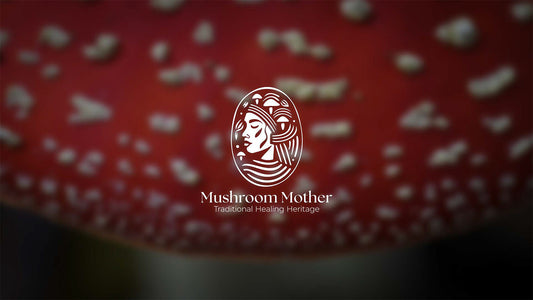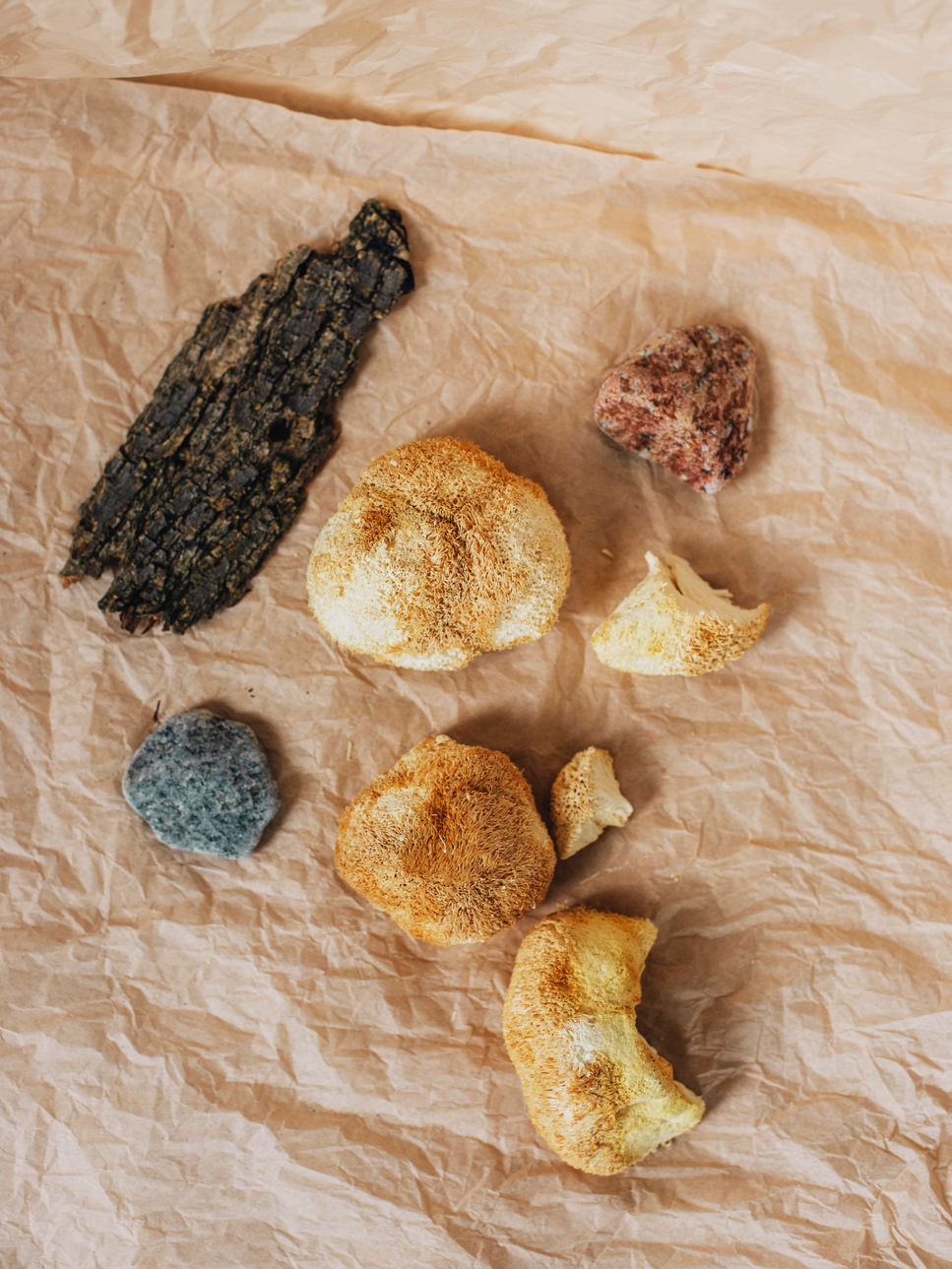
-
Lion’s Mane Mycelium Capsules 120
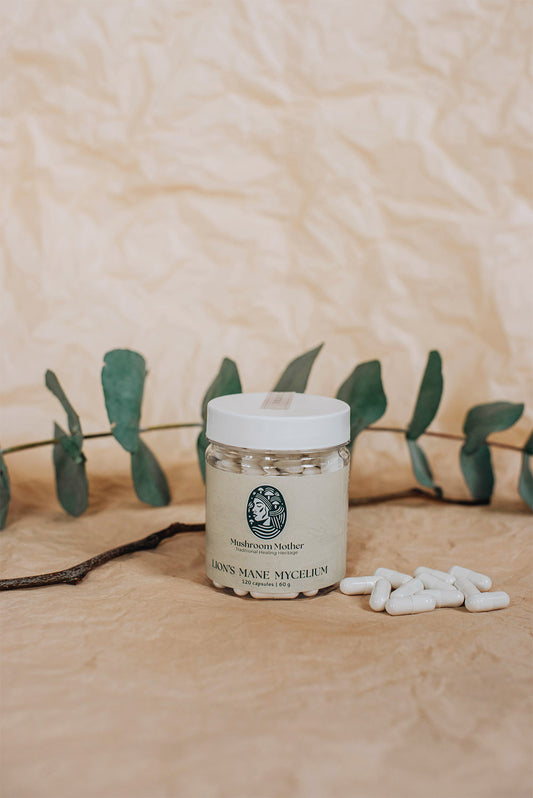
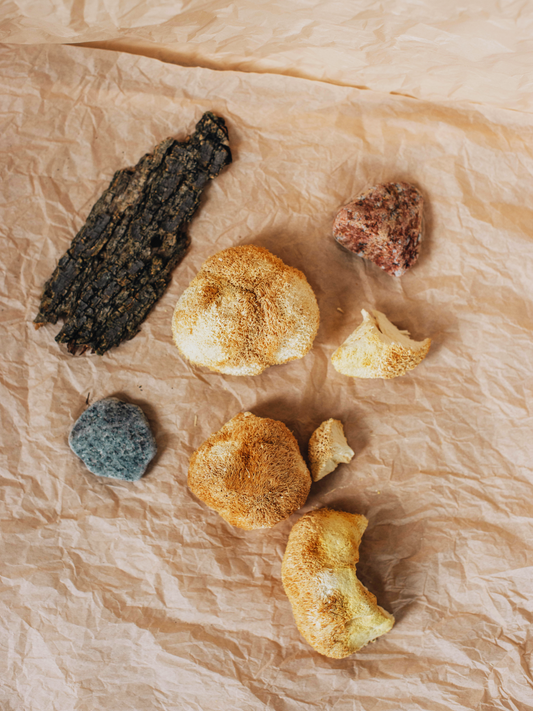 Vendor:Mushroom Mother
Vendor:Mushroom MotherLion’s Mane Mycelium Capsules 120
- Regular price
- £29.00
- Sale price
- £29.00
- Regular price
-
Lion's Mane Whole Mushrooms 50 g
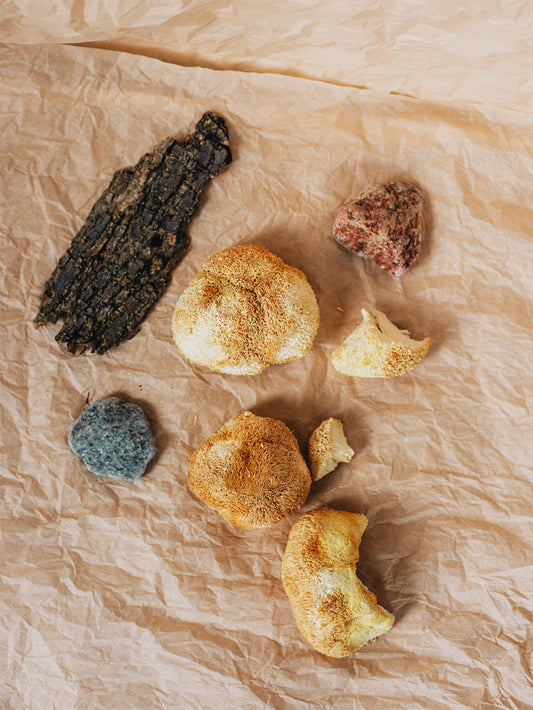
 Vendor:Mushroom Mother
Vendor:Mushroom MotherLion's Mane Whole Mushrooms 50 g
- Regular price
- £19.00
- Sale price
- £19.00
- Regular price
-
Lion's Mane Extract 10:1 Capsules 60
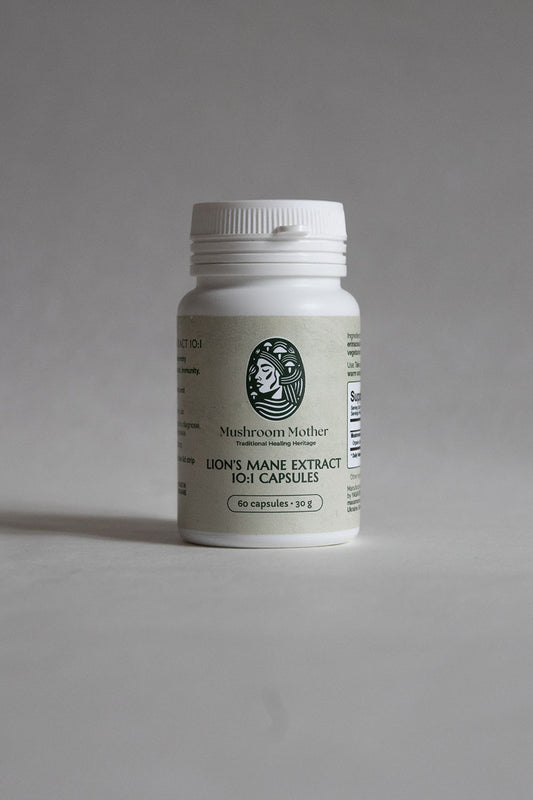
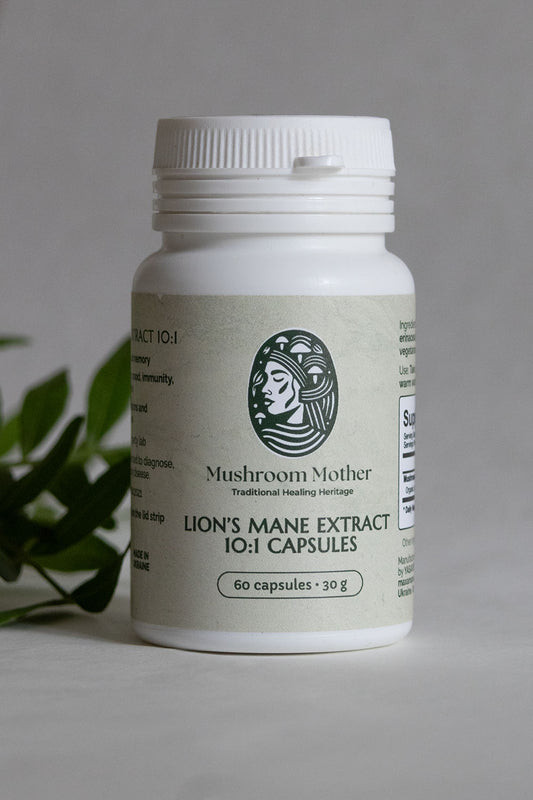 Vendor:Mushroom Mother
Vendor:Mushroom MotherLion's Mane Extract 10:1 Capsules 60
- Regular price
- £24.00
- Sale price
- £24.00
- Regular price
-
Lion’s Mane Mushroom Powder 50 g
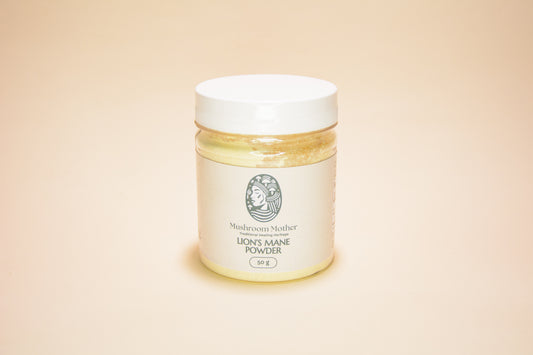
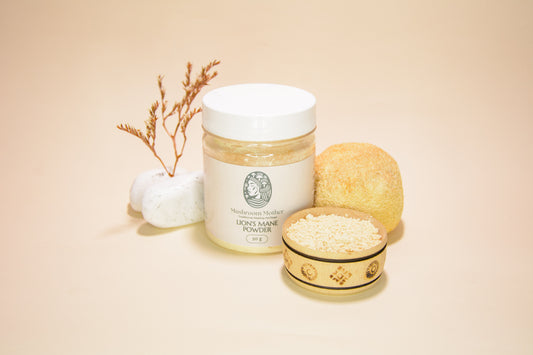 Vendor:Mushroom Mother
Vendor:Mushroom MotherLion’s Mane Mushroom Powder 50 g
- Regular price
- £19.00
- Sale price
- £19.00
- Regular price
Lion's Mane mushroom: nature's brain booster
In the realm of natural supplements, Lion's Mane mushroom stands out for its distinctive appearance and profound health benefits. This remarkable fungus, resembling a white, shaggy mane of a lion, is not only a culinary delight but also a powerhouse of medicinal properties. Growing predominantly in North America, Europe and Asia, Lion's Mane thrives on hardwood trees in temperate forests. Its unique composition and myriad benefits make it a sought-after ingredient in the world of health and wellness.
Composition and benefits of Lion's Mane mushroom
Lion's Mane mushroom is rich in a variety of bioactive substances that contribute to its health-promoting properties. Among these are hericenones and erinacines, compounds that stimulate the growth of brain cells and have been linked to improved cognitive function. Additionally, Lion's Mane contains antioxidants and beta-glucans, which support immune system and have anti-inflammatory effects.
One of the most celebrated benefits of Lion's Mane mushroom is its potential to enhance brain health. This mushroom for brain health is not just a folk remedy; scientific research backs its ability to improve memory, focus and cognitive flexibility. Moreover, Lion's Mane mycelium has shown promise in the prevention and treatment of nerve damage, making it a beacon of hope for those dealing with neurological diseases.
The benefits don't stop at the brain. Lion's Mane mushroom also contributes to gut health, thanks to its prebiotic properties that nourish beneficial gut bacteria. It has been found to reduce inflammation, which is at the root of many chronic diseases, and studies suggest it may also have anti-cancer properties.
Lion's Mane effects on the body
The effects of Lion's Mane mushroom on the body are profound and wide-reaching. Here's how incorporating Lion's Mane mushroom powder, capsules or extract into your diet can impact your health:
- Cognitive enhancement: Regular consumption of Lion's Mane can lead to improved cognitive function. Whether in the form of Lion's Mane powder added to your morning smoothie or Lion's Mane capsules taken as a daily supplement, this powerful mushroom can help sharpen your focus, enhance memory and potentially delay the cognitive decline associated with aging.
- Neuroprotection: The neuroregenerative properties of Lion's Mane mushroom are of particular interest to researchers. By stimulating the production of nerve growth factors, Lion's Mane offers hope for neuroprotective strategies against diseases like Alzheimer's and Parkinson's.
- Immune system boost: The beta-glucans in Lion's Mane bolster the body's immune defenses, helping to fend off pathogens and reducing the duration and severity of illnesses.
- Gut health support: The prebiotic components of Lion's Mane nurture a healthy gut microbiome, which is crucial for overall health. This can lead to improved digestion, reduced inflammation and even a better mood, as the gut-brain axis plays a key role in mental health.
- Mood and anxiety: Preliminary studies suggest that Lion's Mane can have a beneficial effect on mood disorders and anxiety, likely due to its impact on brain health and gut microbiome balance.
Treatment of diseases and their prevention thanks to beneficial properties of Lion's Mane
Lion's Mane mushroom can be a powerful ally in the treatment and prevention of various diseases, particularly focusing on its effects on the nervous system, depression, antioxidant properties, heart and blood vessels, gastrointestinal tract, diabetes, immunity, dementia, Alzheimer's, and tumor prevention and treatment.
Effect on the nervous system
Lion's Mane is often heralded as a mushroom for brain health due to its ability to stimulate growth of brain cells. It contains compounds that can influence brain neurotrophic factors, which are essential for brain health. This makes Lion's Mane a potential candidate for preventing and treating nerve damage and promoting cognitive function.
Will Lion's Mane help with depression?
Recent studies suggest that Lion's Mane use could have antidepressant effects. The mushroom's ability to enhance nerve growth factor (NGF) levels in the brain is thought to improve mood and alleviate symptoms of depression, making Lion's Mane dried mushroom powder or capsules a natural option for mood enhancement.
Antioxidant properties of Lion's Mane
Lion's Mane is rich in antioxidants, which help neutralise harmful free radicals in the body. These antioxidant properties contribute to reducing inflammation and preventing oxidative stress, factors linked to various chronic diseases.
Benefits for heart and blood vessels
Research indicates that Lion's Mane can help reduce the risk of heart disease by improving fat metabolism and lowering triglyceride levels. Its compounds also have the potential to prevent the oxidation of cholesterol in the bloodstream, a key risk factor for atherosclerosis.
Use of Lion's Mane for ulcers and diseases of gastrointestinal tract
Lion's Mane extract has been found to have beneficial effects on gastrointestinal tract. It can help prevent and treat ulcers by promoting the growth of stomach mucosal lining and inhibiting the growth of H. pylori, a bacterium often associated with ulcers.
Sugar control and prevention of diabetes with Lion's Mane
Lion's Mane may also play a role in diabetes management by improving insulin sensitivity and reducing blood sugar levels. This makes Lion's Mane capsules or powder a potential supplement for those looking to control their sugar levels naturally.
Benefits for immunity and its strengthening
The immune-boosting properties of Lion's Mane are well-documented. Its high content of beta-glucans and other polysaccharides helps to stimulate the immune system, enhancing the body's ability to fight off infections and diseases.
Fight against dementia and Alzheimer's
One of the most exciting areas of research regarding Lion's Mane is its potential to combat neurodegenerative diseases such as dementia and Alzheimer's. By promoting the production of NGF and enhancing neuronal growth, Lion's Mane may help improve memory and cognitive functions.
Prevention and treatment of tumors
Emerging evidence suggests that Lion's Mane mushroom may have anti-tumor properties. Its bioactive compounds can induce apoptosis (cell death) in cancer cells and inhibit the spread of tumors, offering solution for cancer prevention and treatment.
What you need to know before taking Lion's Mane
Before incorporating Lion's Mane into your wellness regimen, it's crucial to understand its contraindications, possible side effects, recommended dosages and potential risks.
Contraindications:
Lion's Mane is generally considered safe for most people, but there are specific instances where caution is advised. Individuals with known allergies to mushrooms should avoid Lion's Mane, as it may trigger allergic reactions. Additionally, due to its potential to modulate immune function, those with autoimmune diseases or those on immunosuppressive medication should consult with a healthcare professional before use. Always consult first if you have pre-existing health conditions or are taking other medications.
Side Effects:
While Lion's Mane is well-tolerated by many, some individuals may experience side effects. These can include gastrointestinal discomfort, such as bloating or diarrhea, particularly when consumed in large amounts. In rare cases, it can cause skin rashes or breathing difficulties, especially in those with mushroom allergies.
Dosage and administration:
The optimal dosage of Lion's Mane can vary depending on the form (powder, capsule, tincture) and the individual's health goals. Studies have used dosages ranging from 500 mg to 3 g per day, showing benefits without adverse effects. It's recommended to start with a lower dose and gradually increase as needed. Lion's Mane can be taken with or without food, but consuming it with food may help mitigate potential gastrointestinal discomfort. Consistency is the key for achieving the best results, so incorporate it into your daily routine for several weeks to months.

